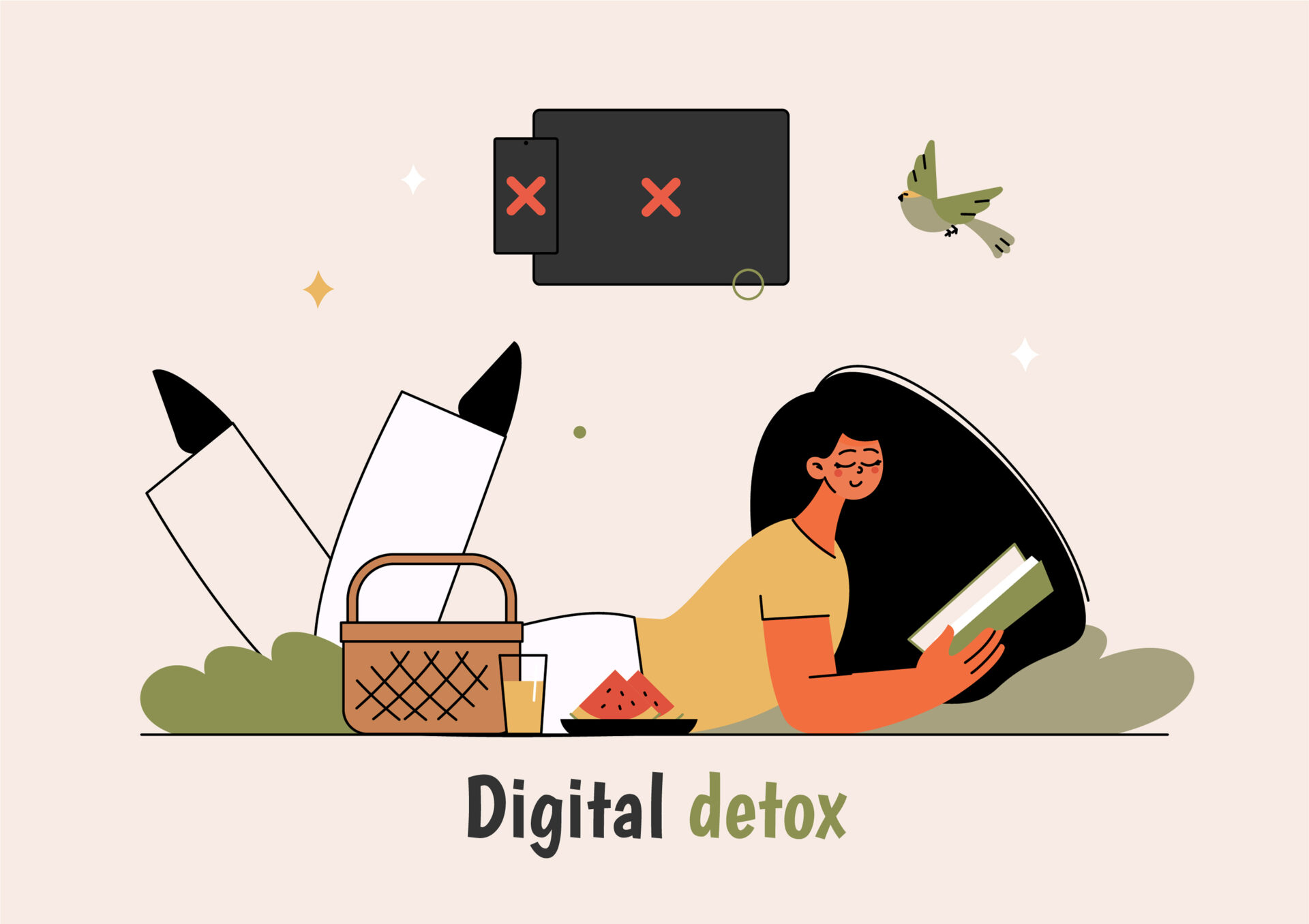Table of Contents
In an ever-more screen-dominated world, being always connected has become the norm. We work on laptops, network via smartphones, unwind with streaming sites, and even exercise or shop through digital apps. Technology may be convenient and speedy, but our excessive dependence on screens is quietly affecting our health, concentration, and relationships.
This is where a digital detox—a deliberate separation from screens and digital media—enters the picture. In 2025, taking a step back from screens isn’t just a good thing—it’s necessary.
Screen Time Overload: A Contemporary Conundrum
The average adult spends over 10 hours per day gazing at screens. From responding to work emails, scrolling through social media, watching YouTube videos, or playing games, screen time adds up quickly. This near-constant digital activity can lead to:
- Eye strain and headaches
- Sleep disturbances
- Mental fatigue and reduced concentration
- Increased anxiety and mood swings
- We’re connected 24/7—but often at the cost of being present in our own lives.
Mental Health and the Need to Unplug
Numerous studies have linked high screen time, especially social media usage, to increased stress, depression, and anxiety. Constant exposure to curated images and news can trigger comparison, fear of missing out (FOMO), and information overload.
Stepping away from screens, even for a little while, can:
- Reduce stress levels
- Uplift mood and mental focus
- Revive emotional equilibrium
- Enhance self-awareness and present moment awareness
Screen Time and Sleep Quality
Screens give off blue light, which disrupts melatonin production—the sleep hormone. Scrolling through your phone right before bed, watching TV shows late into the night, or staying up late working on a laptop can trigger disruptions to your natural sleep pattern.
A digital detox, particularly in the evening, can:
- Improve sleep quality and length
- Help your brain wind down and get ready to sleep
- Decrease insomnia and restlessness at night
Reconnecting with Real Life
Excessive screen time tends to draw us away from real life relationships and experiences. In a digital detox, individuals tend to:
- Spend more quality time with family and friends
- Relearn hobbies of the past
- Enjoy nature and offline activities
- Feel more grounded in themselves
- These advantages can result in long-term changes in well-being and happiness.
How to Begin Your Own Digital Detox
You don’t need to abandon technology altogether. The intention is balance, not complete avoidance. Here are easy steps to get going:
Establish screen-free periods:
- such as during meals or 1 hour before sleep
- Disable unnecessary notifications
- Create a no-phone area (such as bedroom, dining area)
- Take breaks throughout the workday—use the 20-20-20 rule (every 20 minutes, gaze 20 feet away for 20 seconds)
- Substitute screen time with exercise, writing in a journal, or reading
- Even one deliberate, screen-free hour each day can pay big dividends.
Final Thoughts
In 2025, when nearly everything can be done online, unplugging might feel against nature—but it’s needed now more than ever. A digital detox provides your mind and body with rest, recharge, and reset. It’s not about turning away from technology—it’s about leveraging it well and guarding your peace in a hectic digital age.
Take the break then. Log off for a bit. You might just find the pieces of life you’ve been scrolling past.

